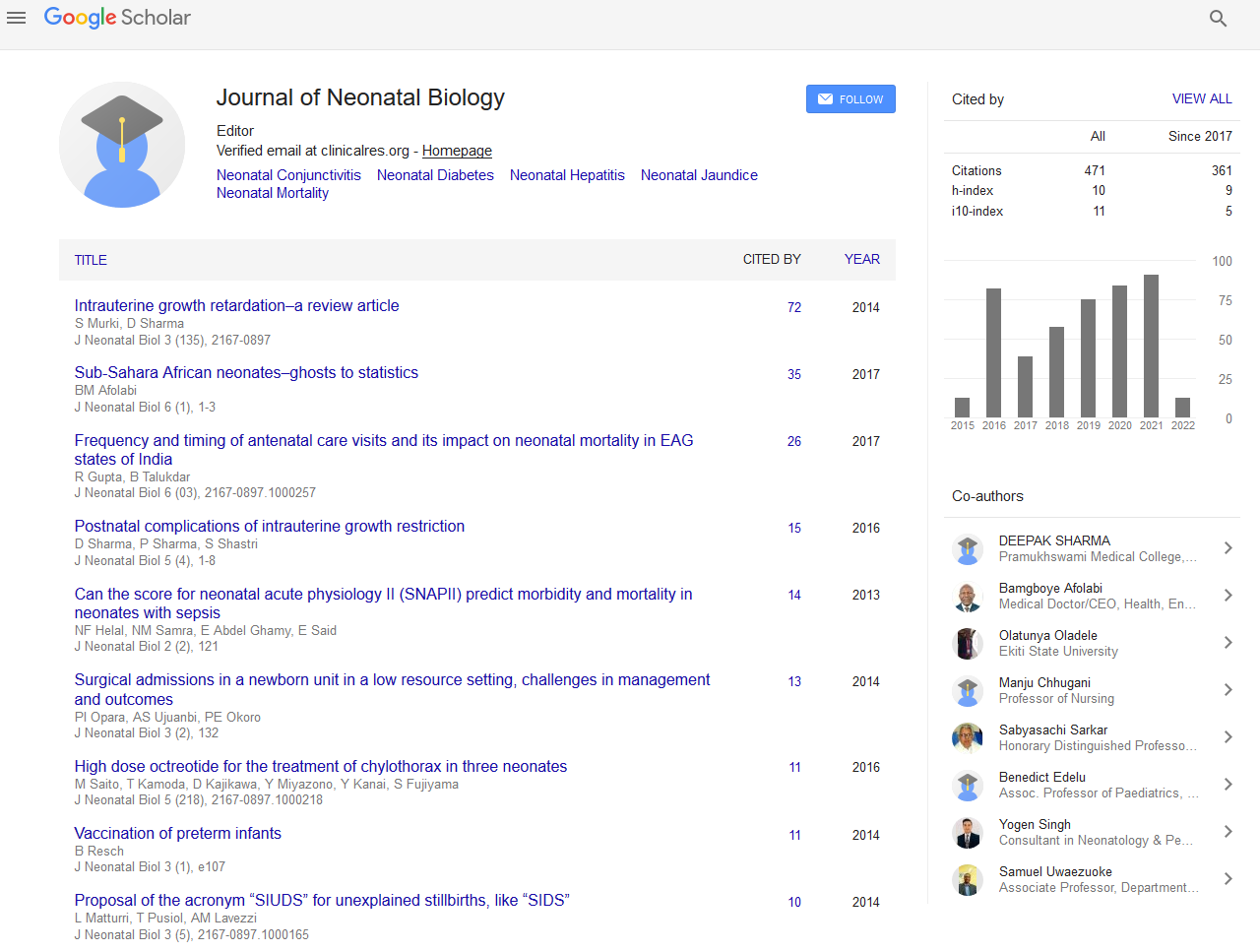PMC/PubMed Indexed Articles
Indexed In
- Genamics JournalSeek
- RefSeek
- Hamdard University
- EBSCO A-Z
- OCLC- WorldCat
- Publons
- Geneva Foundation for Medical Education and Research
- Euro Pub
- Google Scholar
Useful Links
Share This Page
Journal Flyer

Open Access Journals
- Agri and Aquaculture
- Biochemistry
- Bioinformatics & Systems Biology
- Business & Management
- Chemistry
- Clinical Sciences
- Engineering
- Food & Nutrition
- General Science
- Genetics & Molecular Biology
- Immunology & Microbiology
- Medical Sciences
- Neuroscience & Psychology
- Nursing & Health Care
- Pharmaceutical Sciences
Risk factors for developing epilepsy after neonatal convulsions
9th International Conference on Neonatology and Pediatric Neurology
November 28-30, 2016 Valencia, Spain
Darja Paro Panjan, Aneta Soltirovska Salamon and David Neubauer
University Medical Centre Ljubljana, Slovenia
Scientific Tracks Abstracts: J Neonatal Biol
Abstract:
Neonatal convulsions (NC) are the most distinctive sign of disturbance of the central nervous system with incidence 2-3/1000 in term and 10-15/1000 in preterm infants. NC may cause irreversible changes to the immature brain and progress to epilepsy. The outcome is, to a large extent, dependent on the cause of the convulsions, while some other clinical and electrophysiological parameters are also predictive. Our study of 61 newborns with NC, born between 1989 -1995 found epilepsy in 18%. The group of causes with perinatal hypoxia was significantly associated with subsequent epilepsy. Predictive factors for outcome were neurological examination, the number of days with seizures and EEG findings. Considering the high incidence of neurological sequelae after NC our retrospective study of 176 newborns, born between 1999-2009, aimed to construct risk score for postnatal epilepsy. The incidence of epilepsy in this group was 18.1%; moderately to severely abnormal EEG background activity and aetiology were predictive for epilepsy. The duration of seizures had a different effect on the development of epilepsy with respect to the gestational age, which turned out to determine the association between the two predictors. Our results support the evidence that recurrent and prolonged NC may act on an epileptogenic substrate, causing further damage, which is responsible for the subsequent clinical expression of epilepsy. We conclude that the construction of a simple scoring system, based on independent predictors, as a universal useful tool for prognosis of epilepsy after NC is not reasonable due to connection and interaction between variables.
Biography :
Email: darja.paro@gmail.com


